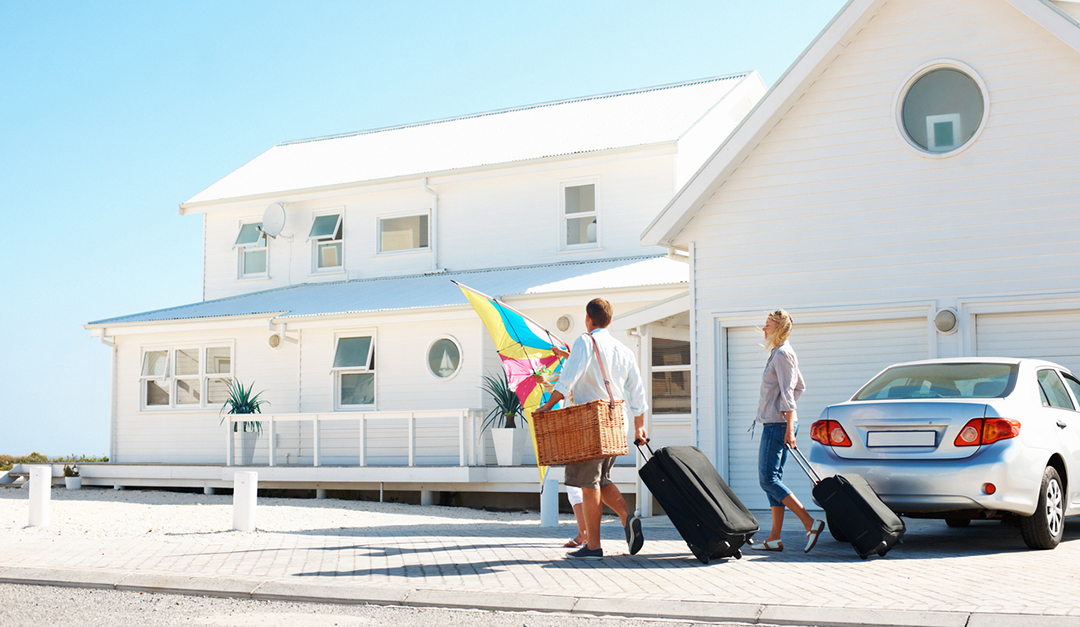(TNS)—Second homes give people the chance to live another lifestyle, in another part of the country, or even outside the U.S. For some, it’s appealing enough to get another mortgage or invest a substantial amount of savings to buy one.
If you’re pining for a home away from home, you’re not alone. There were 7.4 million second homes in 2016, or about 5.6 percent of the total housing stock, according to a report from the National Association of Home Builders (NAHB). The most popular place for a second home is Florida (1.1 million). California, New York, Texas, Michigan, North Carolina, Arizona and Pennsylvania were also popular states for second homes.
But before you join the club, make sure you’re prepared for the long-term responsibilities a second home comes with. From taxes to renting it out, here we break down some important real-life considerations for dream-life vacation homes.
Consider the Full Financial Impact
As a (second-home) homeowner, all the financial responsibility falls on your shoulders—twice. If you have a sewer pipe problem in your main residence and then, a short time later, your HVAC system needs repair in your second home, you’ll have two whopping, back-to-back bills.
Additionally, you’ll have double the bills for home insurance, taxes and various other expenses like utility bills, lawn maintenance and homeowners association, or HOA fees (when applicable).
“It’s very important that buyers write out a detailed budget, taking into account contingent expenses—for example, will flood insurance be required and what is that cost? Are the appliances going to need to be replaced soon?” says Charles Nilsen, national director of Private Client Lending at Boston Private.
Although homebuyers might be able to afford these costs, keep your big-picture goals in sight, says Daniel R. Hill, president of investment advisory firm D.R. Hill Wealth Strategies, LLC, in Richmond, Va.
Hill encourages his clients to consider these big money issues before jumping into another home:
- Are you saving at least 15 percent of your current income for retirement?
- Do you have six months (preferably nine months) in an emergency cash fund readily available?
- Are you out of credit card debt?
- Is your current home paid off?
- And, if applicable, have you established a college fund for your children?
If all of these boxes can be checked, then buyers are likely in a safe position to consider a vacation home, Hill says.
What Happens If You Need a Second Mortgage
You’re still paying off the mortgage on your primary residence when you have fallen in love with a great summer home, and now you’ll need another mortgage. Here are a few things borrowers should know.
Like any loan, banks will consider whether your income is sufficient to pay your costs, says Judith Corprew, executive vice president and financial literacy program director at Patriot Bank, N.A. Be prepared to have your credit report reviewed, as well as income, employment history and assets.
Consolidating outstanding credit card or other high-interest debt into a lower payment, using a HELOC or other low-interest products can help your financial picture look better to lenders, says John Sweeney, head of Wealth and Asset Management at Figure Technologies.
Your Ability to Travel to Other Destinations Might Be Squeezed
The old saying “familiarity breeds contempt” can be applied to vacation homes, for some folks. After 10 summers in Clearwater Beach, the appeal of warm Gulf waters might give way to the annoyance (and cost) of hurricane season. Likewise, a 10-hour scenic drive to a mountain cabin can quickly transform into a burdensome schlep after a few years.
The point is: Do you want to get stuck in one place for the long term?
“Buyers should consider whether the second home will compromise their ability to travel to other places. If the individual or family enjoys traveling to the same location each year, purchasing a home there may make sense, but it may be challenging to juggle the expenses of a second home with trips to other locales,” says Nilsen.
Vacation homes are still homes, so make sure other desirable amenities are accessible. Things like grocery stores and restaurants, as well as golfing or gyms, are part of our everyday life and might also figure into the happiness equation. A second home that also provides conveniences you rely on will help your home retain its appeal as time goes on.
Renting Out Your Second Home
Collecting rent money can be a smart way to subsidize your vacation property; however, there are laws that you should be aware of before you buy. Keep in mind, laws vary by state, city and even neighborhood, so what’s good for one community might not be allowed in another.
For example, in New York City, Airbnb is illegal unless the permanent resident is living in the apartment or the apartment is being rented out for more than 30 days.
For condominiums, buyers should find out if the condo bylaws allow for renters or Airbnb-like rentals. The same goes for HOA rules.
“Some communities require a minimum of 90-day rentals with prior association approval of the renter. If that’s the case, buyers will want to assess whether finding qualified renters will require a REALTOR® and calculate the commissions that will need to be deducted,” says Nilsen.
Cleaning services, insurance and general maintenance are costs landlords should include in their budget, as well. Since you can’t guarantee rental income, make sure you can afford these costs (including a monthly mortgage payment) on your own.
You might also have to forgo your desired time to be in your second home in order to get rental income, which could diminish the appeal of a second home.
“Sadly, the most demand from renters is likely during the time you want to be there. When we look at numbers with clients, we often end up suggesting they rent a home for a week or a month instead of entering the world of landlording. It’s often cheaper and comes with fewer hassles,” says Timothy Parker, partner at Regency Wealth Management.
Taxes on Vacation Homes
According to the Internal Revenue Service (IRS), a vacation home is either classified as a personal residence or a rental property. It’s a personal residence if you limit renting it out to 14 days or fewer per year; more than 14 days and it’s considered rental property. In most cases, you’ll have to report rental income regardless of the classification.
If your vacation home is classified as a rental property, you won’t be able to claim the mortgage interest tax deduction; however, you can claim losses on your rental if the amount you spend exceeds your rental income. You can report these losses on Schedule E of your Form 1040.
Be sure to talk to an experienced tax professional about your potential liabilities and deductions. And keep in mind you can only deduct interest paid on mortgages of $750,000 or less total of all your homes.
Second Homes Can Be a Dicey Investment
Anyone who remembers the housing crisis knows that home values are not guaranteed. After the housing market peaked in 2006, values plummeted by 33 percent nationally, wiping out equity and forcing homeowners into foreclosure.
Many experts agree that residential real estate is not necessarily the best way to invest money, so for folks who want to build wealth, buying another home might not be fertile ground.
“Many people mistakenly believe that real estate is a good and safe investment,” says Robert R. Johnson, professor of Finance, Heider College of Business, Creighton University. “They fall prey to stories of real estate values rising dramatically over long periods of time. What they don’t realize is that from 1890 to 1990 the inflation-adjusted appreciation in U.S. housing was just about zero. That amazes people, but it shouldn’t be so amazing because the cost of construction and labor has been going down.”
©2019 Bankrate.com
Distributed by Tribune Content Agency, LLC











